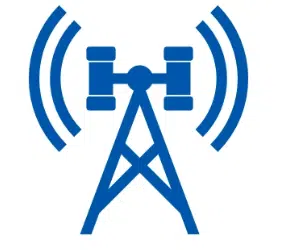Leases and easements are distinct legal arrangements that grant different rights to property owners and cellular carriers or tower companies. Here are the key differences between a lease and an easement for a cell tower:
Cell Tower Lease:
- Ownership and Control: A cell tower lease is a contractual agreement between the property owner and a cellular carrier or tower company. The property owner retains ownership and control of the land or property and grants the carrier the right to use a portion of it for the installation and operation of a cell tower and associated equipment.
- Financial Compensation: In exchange for granting access to their property, the property owner receives financial compensation in the form of rent or lease payments. These payments are typically negotiated and specified in the lease agreement. Lease payments are often structured with rent escalations and can provide a steady income stream for the property owner.
- Lease Terms: Cell tower leases have specific terms and conditions, including the duration of the lease, rent amounts, rent escalation clauses, access rights, and other provisions. Lease agreements are often negotiable and can vary widely in terms of their terms and conditions.
- Lease Continuation: At the end of the lease term, the lease agreement may be renegotiated, extended, or terminated as specified in the contract. The property owner typically has the option to negotiate new lease terms.
Cell Tower Easement:
- Limited Rights: An easement is a legal right that allows the cellular carrier or tower company to access and use a specific portion of the property for a particular purpose, such as the installation and maintenance of a cell tower. Easements grant limited rights, and the property owner retains ownership and control of the property.
- No Rent Payments: Unlike a lease, easements do not involve rent or lease payments. Property owners typically do not receive financial compensation for granting an easement. Instead, the carrier or tower company is granted specific access rights.
- Perpetual or Limited Duration: Easements can be either perpetual (lasting indefinitely) or for a limited duration, depending on the terms negotiated between the parties. Perpetual easements grant long-term access rights, while limited-term easements have specified expiration dates.
- Easement Purpose: Easements are typically created for a specific purpose, such as allowing the carrier to install and maintain a cell tower, run utility lines, or access a specific area for other reasons. The terms and scope of the easement are defined in the legal agreement.
In summary, the primary difference between a cell tower lease and a cell tower easement is the nature of the rights granted to the carrier or tower company and the associated financial compensation. A lease involves a contractual agreement with rent payments and specific lease terms, while an easement grants limited access rights without ongoing financial compensation. Property owners and carriers can choose the arrangement that best suits their needs and objectives.
